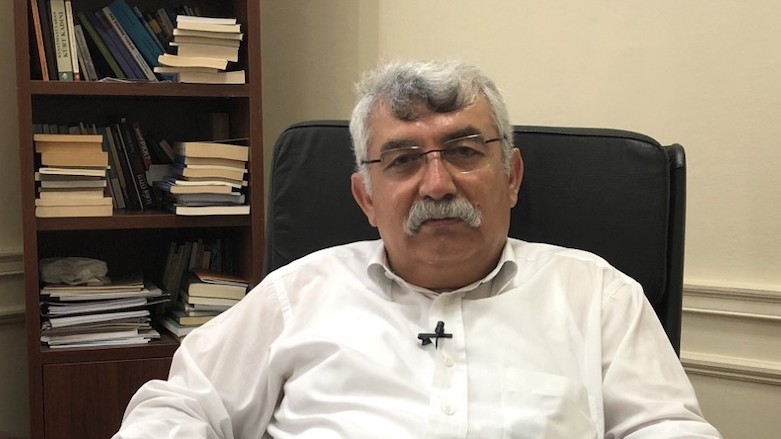EU Parliament refuses entry of veteran Kurdish politician

ERBIL (Kurdistan 24) – Zubeyir Aydar, an executive council member of the Kurdistan National Congress (KNK), was rejected entry to the European Parliament on Tuesday for security reasons.
Aydar, who is on Turkey’s wanted list, was rejected due to “alleged security reasons,” Kurdish news agency ANF reported.
He was scheduled to speak at an annual two-day conference on Kurds.
Despite Turkish criticism, the KNK member has been allowed to enter the EU Parliament on previous occasions.
International Human Rights Lawyer Margaret Owen denounced the EU Parliament’s decision, describing it as a violation of freedom of speech.
“Zubeyir Aydar, KNK (Kurdistan National Congress) Belgium, was today refused admission to enter the EU Parliament building to speak at the 15th International Conference of the EU Turkish Civil Commission (EUTCC). On Turkey’s and the Kurds. An Outrage,” she wrote on Twitter.
The EUTCC, which organized the conference, also condemned the European Parliament Presidency’s “sudden, arbitrary decision.”
“This regrettable action negates freedom of speech, the pursuit of peace and democracy,” it added.
Instead of Adyar, someone else read his speech at the EU Parliament.
In his speech, Aydar condemned the United States’ announcement of multi-million dollar bounties on three senior Kurdistan Workers’ Party (PKK) leaders and the listing of the PKK as a “terrorist organization.”
“We consider this decision unlawful, immoral,hypocritical and hostile. We expect the US government to reverse the decision. Both the terrorist list and the suspension of bounties are intended to satisfy Turkey,” he said.
“With such decisions, however, no balance between Turks and Kurds can be established.”
According to Aydar,appeasing Turkey will not stop Turkish president Recep Tayyip Erdogan from attacking the Kurds until “all achievements of the Kurds are destroyed.”
“The best that the EU and the US can do is bring the Kurds together at the negotiation table,” he emphasized.
The peace process between Turkey and the PKK broke down in July 2015. Aydar was one of the Kurdish officials involved in the PKK-Turkey peace talks in Oslo between 2009 and 2011.
Aliza Marcus, a Washington DC-based analyst and author of a book on the PKK, told Kurdistan 24 that Turkey’s “demands are unlikely to stop here.”
“The US may have bought some time, as it were, with this gesture, but offering reward money is still a fairly passive act,” she said.
The US had also previously tried to ease tensions between Turkey and Syria’s Kurds through the Manbij roadmap agreement in June.
As part of the plan, joint US-Turkish patrols outside the Syrian city of Manbij started on Nov. 1 and on Friday, a joint US-Turkish delegation met in Ankara. Nevertheless, Turkey is still threatening to attack Syria’s Kurds and has carried out cross-border shelling in the past.
Salih Muslim, the former co-chairman of the Democratic Union Party (PYD), confirmed that so far, Turkish shelling has stopped.
In November, the US-led coalition decided to set up observation points to stop this potential Turkish threat. However, Muslim said it is still possible Turkey would attack again. “Turkey can make a clumsy movement any time,” he stated.
Furthermore, he said its difficult to restart talks again between the PYD and Turkey, after Turkey occupied Afrin in March. In the past, during the peace process, there were talks between the PYD and Turkey to solve their differences.
“We are not the enemies of the Turkish people, but with this government that sees our movement as terrorists, it’s impossible to talk to them.”
Editing by Karzan Sulaivany
